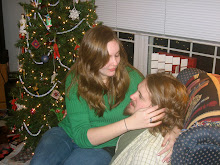Publius Ovidius Naso wrote his greatest work on Change. The Metamorphoses revolves around every type and variation of change Ovid could compile into his large work. David Malouf’s fictional account of Ovid’s time in exile reflects the theme that ran through Ovid’s most famous work vibrantly. An Imaginary Life, due to the nature of its protagonist, obviously has close ties to Ovid’s Metamorphoses, the poet being the main character. However, the ties go far deeper than that.
Of immediate notice is the lyrical voice throughout the novel. While still very much prose, the words and sentences flow off the page and, when spoken aloud, slither through the air with grace almost equal to Ovid’s own poetic verse. The elegant yet simple way of telling Ovid’s story lends Malouf a tone very much mythic in feel, just as Ovid’s work portrayed the myths of his culture.
However, the truest tie, the one that binds the tightest, is the change inherent in Malouf and Ovid. Malouf portrays in his novel the metamorphosis of Ovid. “Slowly I begin the final metamorphosis. I must drive out my old self and let the universe in” (96). Ovid arrives at Tomis a civilized Roman, attuned to society and the Roman way of life, but, with help from the intervention of a feral child, Ovid changes into a new sort of man, one far closer to nature and the universe. As Ovid lies dying, he reaches the pinnacle of his naturalization, feeling one with the earth around him. Having moved as far from his previous life as he possibly could have, Ovid has lived through the last of his metamorphoses.
This novel truly brings the methods and ideologies of the classical time period into today, humanizing and familiarizing ideas and people that have taken almost mythological status in modern times. It is through works of a more modern sensibility that one can find any immediacy and modern day important in the works of greats thousands of years removed. Perhaps Ovid’s final change will bring us all closer to discovering the truth found in all myths, all cultures, and all lives.
4 years ago
